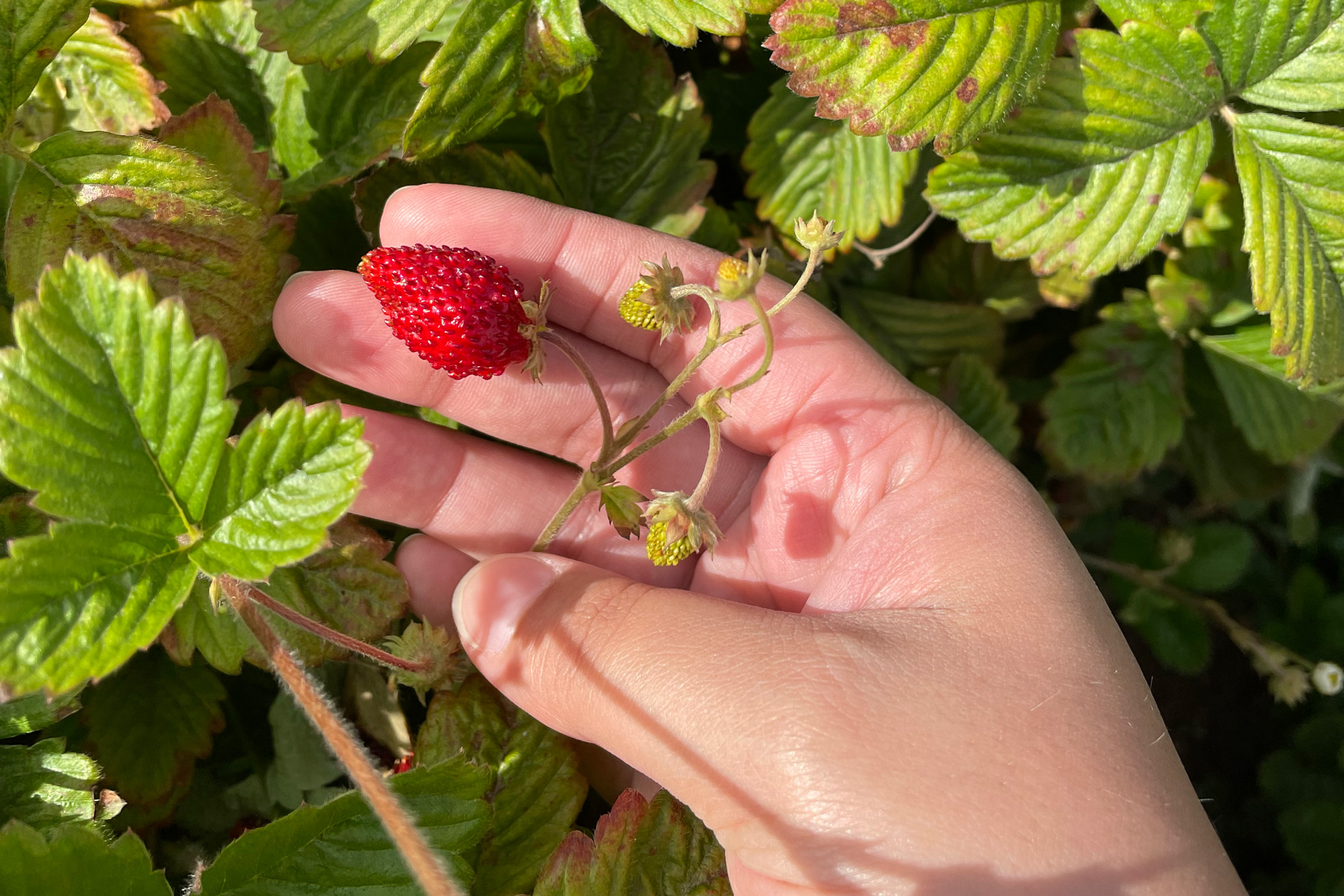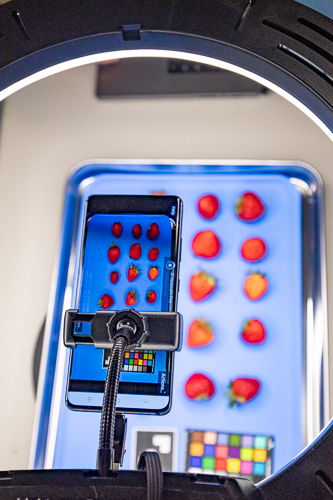How Driscoll’s is embracing artificial intelligence to build an even better berry
| 3 min read
About Driscoll's
Driscoll’s has been a leader in the fresh berry category for over a century. The company has grown to become a household name in this very competitive category by continuously looking for ways to improve flavor, freshness, and consistency to delight consumers around the world, and to enable independent farmers to thrive.
The company has been an early adopter of new ideas, being one of the first to create a consumer-facing brand, to use the clear plastic ‘clamshell’ packaging, to grow year round, and to pioneer advanced breeding to continuously improve berry quality. Unlike many brands that grow generic varieties, Driscoll’s provides its own proprietary baby plants to their growers, and then buys the fruit back to be inspected, cooled, packaged, marketed, and shipped to grocery stores.

Mineral continues to advance robotic autonomy and its perception technology, which has the potential to inform future capabilities for Driscoll’s
The problem
To maintain their strong market position, Driscoll’s has invested heavily in technologies like AI . SVP of Global R&D, Scott Komar, is responsible for heading up this endeavor. Under his leadership, the company has painstakingly collected data on the quality and volume of fruit arriving from its growers, and began tracking where berries were going and how they were holding up along the supply chain. This foresight to invest in collecting a lot of high quality data has enabled Driscoll’s to be a leader in capturing the benefits of AI.
To take full advantage of the data, Komar recognizes that Driscoll’s will need to embed AI not just in isolated applications, but to integrate it across their enterprise. But implementing AI in an agribusiness as complex as Driscoll’s is not a one-time task or a simple SaaS project. AI models need constant retraining and curation, and are hungry for data. Implementing domain-specific AI, such as agriculture, requires close collaboration between experts and the engineers and data scientists selecting the models and designing the feedback systems.
To rapidly accelerate their AI-driven approach, Driscoll’s needed to activate a partner with not only deep AI expertise and tech, but an exclusive focus on agriculture. Enter Mineral.

Driscoll’s found the opportunity to potentially embed and integrate ML and AI technology across its enterprise to collect high-quality plant data, with greater accuracy, to unlock new capabilities and insights for breeders, and to have meaningful impact for growers.
The solutions
Driscoll’s first engaged with the Mineral team to explore ways to improve data collection in its breeding operations. Crop breeding involves the careful collection of multiple datapoints about each plant variety throughout the growing season. Driscoll’s breeding team has been pioneering ways to use robotics and AI to measure plants’ traits — such as the length of strawberry stems or the size of individual raspberries — on thousands of plants in trial plots. The ability to collect data at scale continuously throughout the season - in particular data that is tedious to measure manually - frees up breeders to focus on other tasks.
Insights gained from this data inspired Driscoll’s to work with the Mineral engineers on another challenge: predicting the yield of each plant. Accurate yield forecasting is incredibly important in the berry industry, as it drives critical decisions such as pricing, volume allocation to partners, packaging needs, and labor availability. But, as growing is a natural system influenced by the soil, weather, farmer decisions, the time in the season, pest and disease pressure, and hundreds of other variables, it was challenging and time-consuming to produce accurate forecasts. Integrating hundreds of different data types including time-series data is well-suited to the power of AI. By working hand-in-hand with Mineral’s engineers and data scientists, Driscoll’s has been able to not only significantly improve its forecast accuracy but also increase the frequency of forecasting, reduce forecast volatility, and extend its forecasting horizon. Most exciting is that the AI models are creating a deeper understanding about the drivers of berry yield.
What we’re seeing as we work together is that we’re able to identify breakthrough potential across all different parts of the business, and as we expand into new areas, we build on previous successes.”— Erica Bliss, Mineral’s Chief Commercial Officer
A key learning from this initiative is the synergy of human experts and machine learning algorithms. Mineral’s AI model was able to crunch billions of data points about weather and discover subtle patterns in historical trends, but would be easily flummoxed by an unusual pest outbreak. Driscoll’s forecasters however were experts in the nuances of berry cultivation — and could call a grower to get up-to-date information. The combination of human intuition and raw AI power proved to deliver a more accurate forecast than either alone. Each system learned from the other.
Another important learning is that implementing ML as a service is not like software as a service (SaaS). Models must be monitored and continuously retrained with new data - especially in an agricultural system that is changing every year. It was also apparent that 'off the shelf' ML models performed poorly; it required close collaboration with experts and careful selection of data and models.
The results: the never-ending pursuit of delight
ML can accurately and quickly measure fruit quality, identifying defects which provides a level of quality control to unlock transformative innovation and minimize food waste
Inspired by the breeding work, Driscoll’s and Mineral had the realization that AI also has the potential to accurately and consistently measure fruit quality. Driscoll’s expert quality raters at each of its distribution centers inspect berries when they arrive from the field, and before they’re cooled for shipping. These inspectors need to accurately rate millions of berries a year, correctly identifying dozens of defects. This quality control not only impacts grower payments, but also provides critical insights into the performance of varieties and the berries’ shelf life. Working closely with Mineral’s powerful perception tools and AI team, Driscoll’s was able to build a system that performed similarly to human experts — unlocking the opportunity to extend the technology across their complex ecosystem. As with the other initiatives, not only did the AI algorithms quickly learn the subtleties of berry defects, but the success also inspired new ideas for how AI could transform other parts of Driscoll's business.
The breeding project tasked robots to gather data from millions of plants, freeing up workers to focus on higher level tasks. The yield forecasting project improved accuracy, frequency, and a longer prediction horizon. And the quality control project could enable the expertise of inspectors to be replicated elsewhere in the supply chain. But perhaps the most important outcome of this trio of projects lies in the way that discoveries build upon one another. In this way, AI is not just a tool for solving a known problem, but an engine with the potential to generate entirely new ways of doing business.
Related case studies